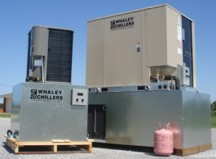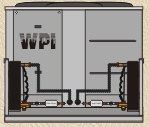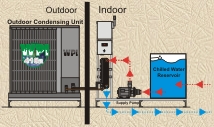Much of the stored blood given to millions of people every year may lack a component vital for it to deliver oxygen to the tissues. Nitric oxide, which helps keep blood vessels open, begins breaking down as soon as blood goes into storage, two research teams report in separate studies in this week’s online edition of Proceedings of the National Academy of Sciences.
An article from MedicalNewsToday.com
A new US study found that cardiac surgery patients who received blood transfusions of blood that had been stored for 2 weeks or less had lower rates of complications and death than those who received blood that was older.
The study was the work of researchers based at the Cleveland Clinic Foundation, Cleveland, Ohio, and is published in the 20th March issue of the New England Journal of Medicine (NEJM).
In this large observational study, the investigators compared 2,872 cardiac surgery patients who received transfusion blood that had been donated within the previous 2 weeks with 3,130 cardiac surgery patients who received transfusion blood that had been donated more than 2 weeks earlier.
They found that the patients who were given older blood had a higher risk of dying in hospital than their newer blood counterparts (2.8 versus 1.7 per cent), and they were significantly more likely to need prolonged ventilation support, have kidney failure, sepsis (inflammation affecting the whole body), or multiple organ failure.
The Cleveland Clinic investigators also discovered a direct “dose response” relationship between days of storage and the chances of a combination of serious complications or adverse events. After eliminating potential confounding factors, an analysis revealed that patients who had received older blood had a significantly higher rate of combined serious adverse events than those who received newer blood.
Also, they found that patients who received newer blood had a higher chance of surviving the first year after surgery than those who received older blood 92.6 versus 89.0 per cent).
Editor in chief of Journal Watch (published by NEJM), Dr Harlan M. Krumholz, Harold H. Hines, Jr Professor of Medicine in the Section of Cardiovascular Medicine at the Yale University School of Medicine, said that the study raised important questions about usage of old blood for use in cardiac surgery transfusions.
The study findings are likely to be true throughout the US, said Krumholz, adding that:
“With a blood supply in constant demand, finding a solution to this problem will not be easy.”
“For now, it seems reasonable to try to ensure that patients needing transfusions who are at the highest risk for adverse events receive blood that is as fresh as possible,” urged Krumholz.
Previous, smaller studies have already raised questions about the shelf life of donated blood and risks to patients. Some hospitals have already brought in new procedures to minimize the use of donated blood during cardiac surgery, such as reducing anemia before surgery, using drugs to stop bleeding during and after surgery, increasing the use of “scavanged blood” where blood lost by the patient is saved and reused, and even discharging patients with a lower than normal red cell count, according to a report by the Los Angeles Times.
The paper also reports that the Cleveland Clinic researchers are planning to conduct a prospective, blinded, radomized controlled study to confirm the findings.
A number of explanations have been offered to explain why older blood raises risks to patients. One of these is that stored blood loses nitric oxide, an important agent in the delivery of oxygen to tissue cells, and another is that red blood cells become more rigid and sticky as they age, making it difficult for them to squeeze through narrow blood vessels and raising the risk of a clot.
 Packaged Chillers Non-expandable (integrated pump tank) 1.5Ton – 20Ton Single / Dual Circuits Single / Dual Pumps |
 SAE Series Modular Chillers Expandable (pump & tank on separate skid) 1.5Ton – 200Ton Single / Dual Circuits |
 SAR Series Split Chillers Expandable (Outdoor Condensing Unit) (pump, tank, evaporator on indoor skid) 1.5Ton – 200Ton Single / Dual Circuits |
